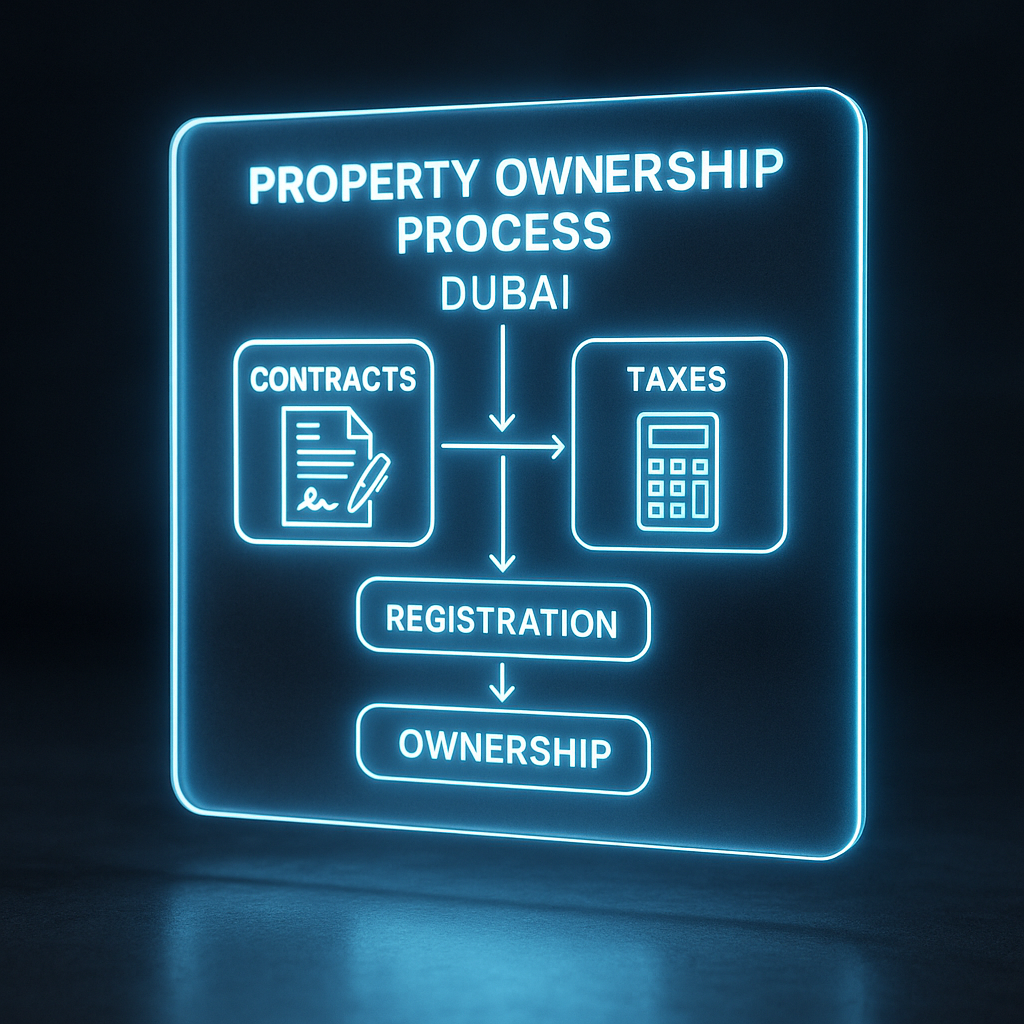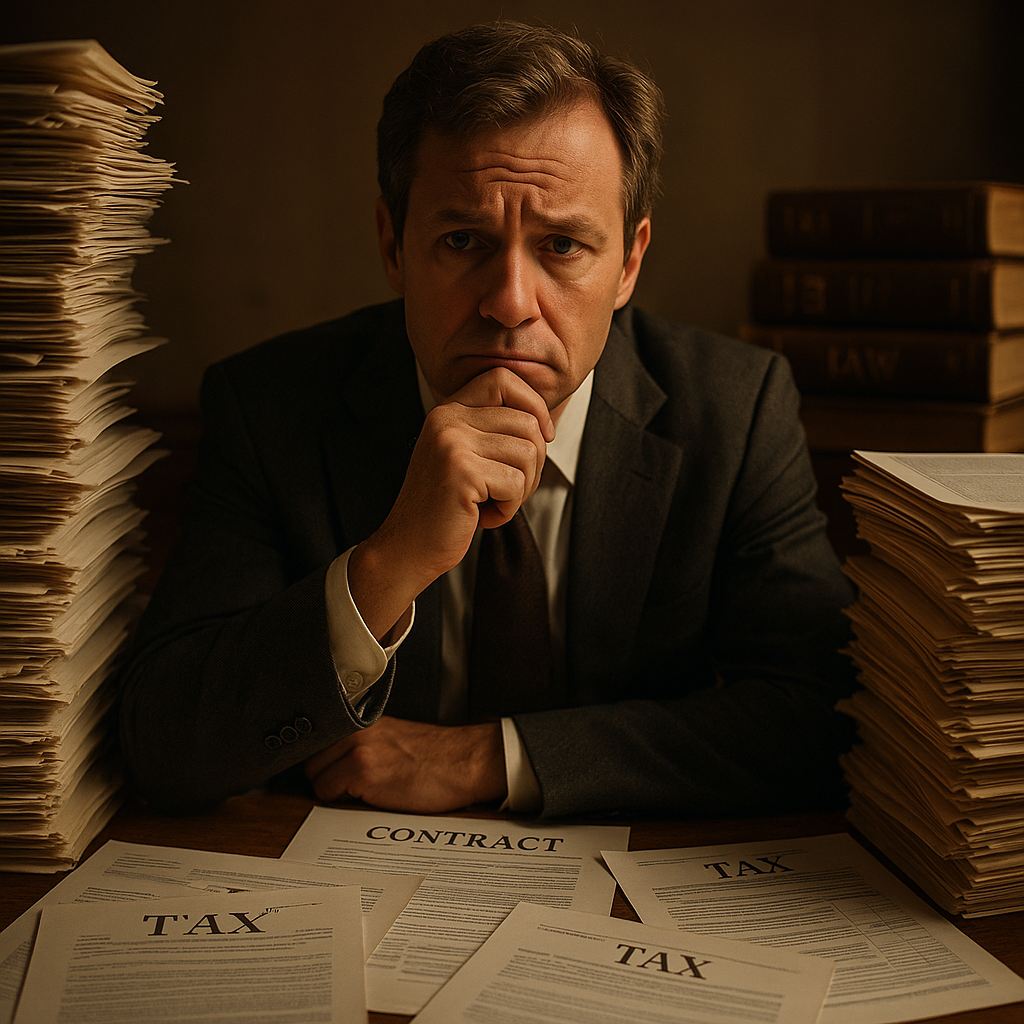Legal Risks in Dubai Real Estate: How to Navigate Complex Laws, Taxes, and Documentation



The Hidden Fear Behind Every Purchase
Dubai has become one of the world’s hottest property markets, attracting investors from Europe, Asia, and beyond. But for many buyers, the biggest fear is not the price — it’s the process. Foreign investors often ask: “What if I miss a law, a tax, or a document and put my entire investment at risk?”
The truth is, Dubai’s property laws are clear but complex. There are rules about ownership zones, transfer fees, rental regulations, and strict requirements for documentation. Without proper guidance, a buyer can easily get lost, delay their purchase, or even face financial penalties.

Why Legal Risks Are So Intimidating
1. Freehold vs. Leasehold Zones
Not all areas in Dubai are open to foreign ownership. While places like Downtown, Palm Jumeirah, and Dubai Marina are freehold zones where foreigners can own property outright, other areas are leasehold, where ownership is restricted to 99-year leases. Many first-time buyers don’t know the difference until it’s too late.
2. Fees and Taxes
While Dubai famously has no annual property tax, every transaction involves:
- 4% Dubai Land Department transfer fee (paid upfront).
- Oqood registration fees for off-plan purchases.
- Service charges varying by project.
- Buyers often underestimate these costs, leading to budget overruns.
3. Documentation Requirements
From No Objection Certificates (NOC) by developers to Ejari registration for rental properties, the paperwork can feel overwhelming. Mistakes in contracts or missing documents may delay transfers or rental approvals.
4. Regulatory Compliance
The Real Estate Regulatory Agency (RERA) enforces strict rules on advertising, escrow accounts for off-plan sales, and agent licensing. Engaging with unlicensed intermediaries exposes buyers to fraud risks.
Risks of Ignoring Legal Details
- Financial Penalties: Missing deadlines for registrations or payments can result in fines.
- Ownership Issues: Buying in the wrong type of zone may restrict your ability to sell later.
- Fraud Exposure: Unscrupulous agents or developers sometimes exploit uninformed buyers.
- Rental Blockages: Without proper Ejari registration, landlords cannot legally lease properties to tenants.
Practical Tips to Minimize Legal Risks
1. Work Only With RERA-Certified Brokers
Always check that your agent is registered with the Dubai Land Department. Licensed brokers are bound by legal and ethical standards.
2. Verify Developer Registration
Ensure the project is listed with RERA and that off-plan sales go through escrow accounts, protecting your payments until construction milestones are met.
3. Budget for Fees
Account not only for the purchase price but also for the 4% DLD fee, NOC charges (around AED 5,000), and potential mortgage registration fees if financing through a bank.
4. Understand Ownership Rights
Choose projects in freehold zones if you want full ownership flexibility. For long-term investors, some leasehold areas may still make sense, but clarity is essential.
5. Stay Informed on Residency Links
Property ownership above AED 750,000 may qualify investors for a UAE residency visa — a major benefit if structured correctly.
Expert Insights: Real-World Data
- In 2023, over 40% of property buyers in Dubai were foreign investors, many purchasing their first property in the UAE.
- The Dubai Land Department recorded 120,000+ property transactions in 2023, making compliance with regulations more important than ever.
- On average, fees and charges add 6–7% to the property purchase price — a surprise for many buyers who don’t plan ahead.
- Delays in NOC issuance or Ejari registration are among the top 3 causes of transaction slowdowns in the secondary market.
Conclusion: Turning Complexity Into Clarity
Legal risks don’t have to stop you from investing in Dubai property. With the right guidance, compliance is straightforward and can even unlock additional benefits such as visas and smoother rentals. The key is transparency, preparation, and access to reliable data.
To avoid these risks and instantly access verified projects with AI-based ratings on Price, Momentum, and Attractiveness, you can use Top Real Estate Dubai. Our platform helps you focus on projects with clean legal standing, strong developer track records, and transparent ownership terms — saving you time and protecting your capital.


Worried about legal risks in Dubai real estate?
Get the real score of any project in Dubai





